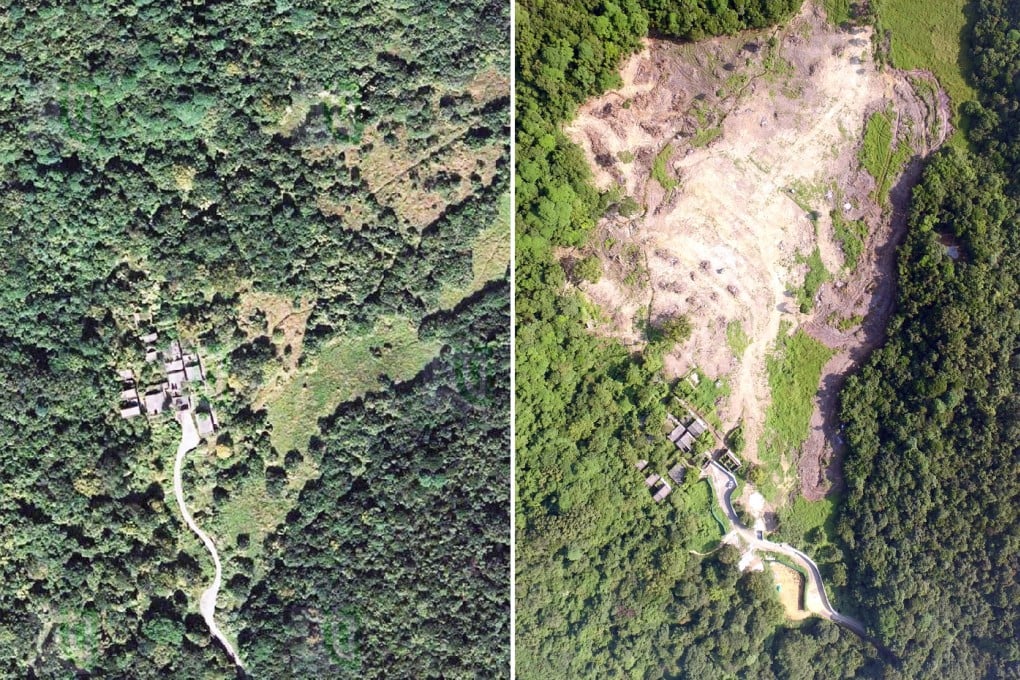‘It looks like a warzone’: Sai Kung country park enclave as big as two soccer fields left bare and muddied by developers
Excavator tracks and burnt logs found by green groups bear testimony to clearance of country park enclave partially owned by developers

Swathes of vegetation have been cleared in a Sai Kung country park enclave, turning a once ecologically rich wetland inhabited by barking deer and porcupines into debris-strewn patches of barren earth.
Aerial photographs of Wong Chuk Yeung, nestled in Ma On Shan Country Park, reveal much of the green belt area to have been destroyed, a large part of it on private land but near areas zoned for conservation.
On-site checks this month by Green Power and the Eco-Education and Resources Centre found hundreds of trees felled and burned. The banks of a stream also seemed devoid of greenery.
“It looks as if a war has just taken place,” the centre’s conservation manager Stanley Chan Kam-wai said, pointing to the excavator tracks, stones and piles of burnt logs scattered haphazardly along the muddied stream.
Wong Chuk Yeung is a key government water catchment and the green groups believe any degradation upstream can affect the surrounding wetland ecosystem and conservation areas.